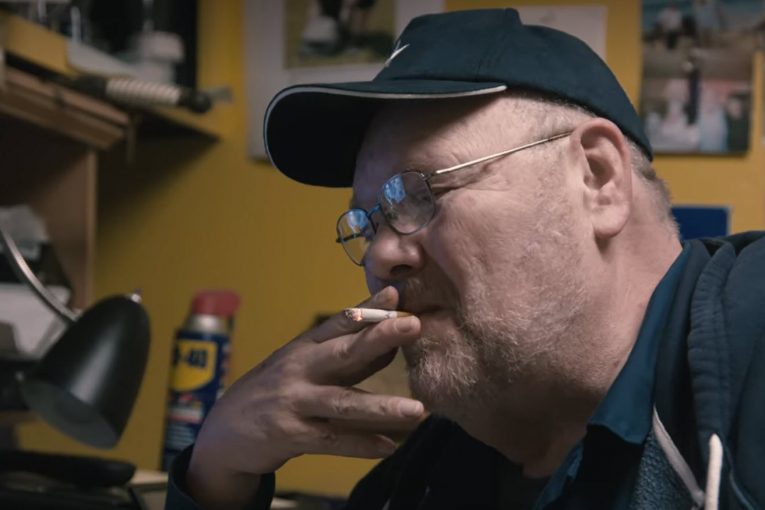
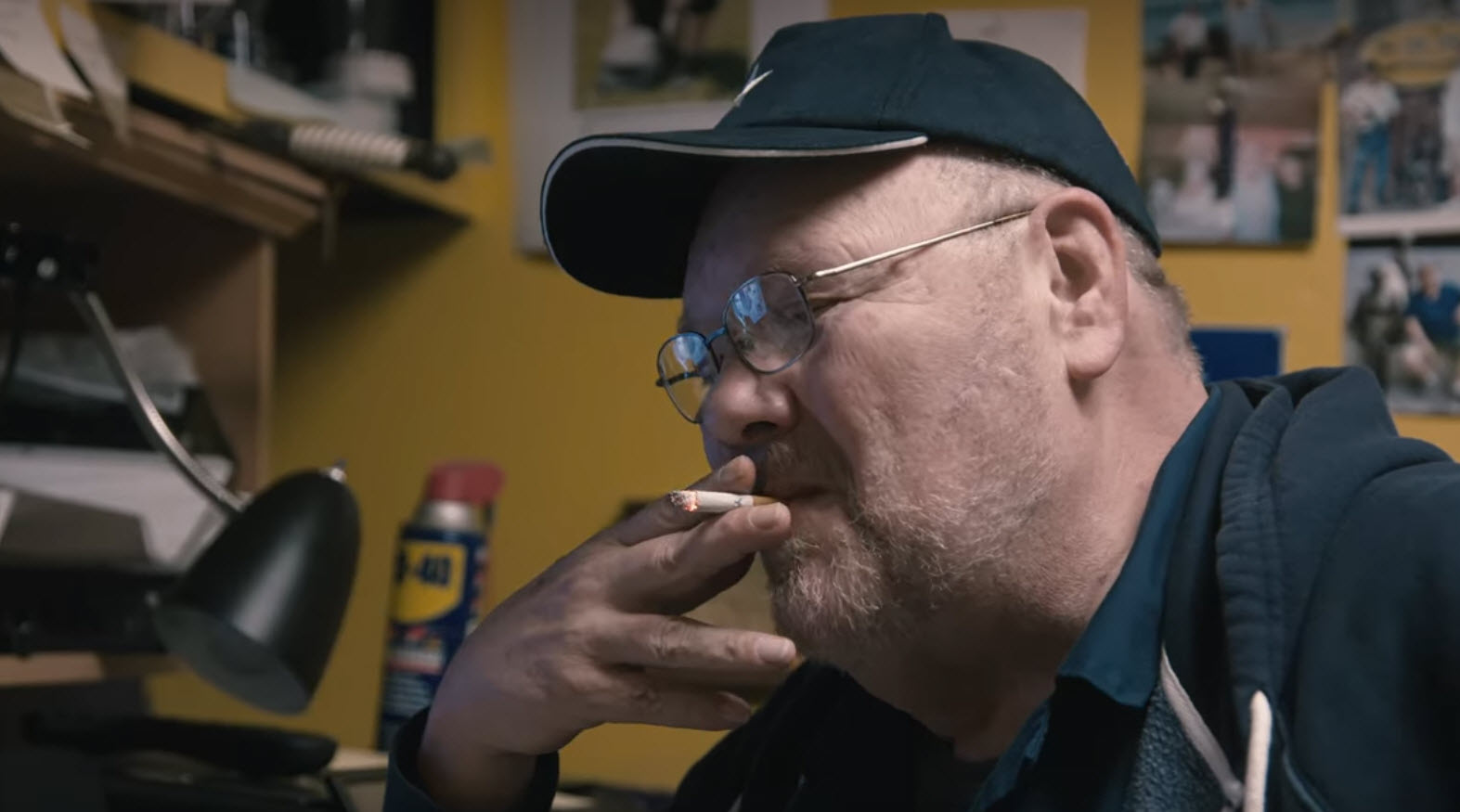
The Netflix series, the Innocence Files, tracks three stories over nine episodes. The first three focus on the story of Levon Brooks and Kennedy Brewer. Those who have read Radley Balko’s book are well familiar with this story and the story of Michael West.
One of the big things we started to learn when Barry Scheck and Peter Neufeld started analyzing DNA evidence and proving that convicted individuals were wrongly accused is they exposed many huge problems in the criminal justice system.
A big one is that we were allowing evidence in under the guise of science that wasn’t scientifically based at all. If you watch CSI or other shows, you will see the marvels of  science used to solve crimes. It is all very alluring. The problem is that most of it is not science at all—it is assumptions that have been admitted as scientific evidence.
science used to solve crimes. It is all very alluring. The problem is that most of it is not science at all—it is assumptions that have been admitted as scientific evidence.
But real science is based on rigorous testing standards—double blind methods where evidence is scrutinized to see if it is reliable and replicable in a lab setting where conditions are controlled. And much of what we know as forensic science—things like hair analysis, bullet lead analysis and bite mark analysis—had never been scrutinized.
And so people like Michael West have gotten rich off his post-mortem “bite mark examinations.” Analyses that are flawed and careless and even reckless. The Innocence Project and people like Radley Balko have exposed that.
As Radley Balko described West in 2016, “In the early to mid-1990s, Michael West became a rock star in the world of forensics. West claimed to have developed techniques that he and only he could perform. According to West, those techniques could both identify bite marks on human skin that no other medical specialists could see, and then match those marks to one person, to the exclusion of everyone else on the planet.”
Such an exploit helped to put a lot of people in prison—a lot of them unfortunately innocent.
Two people that Michael West sent away were Kennedy Brewer and Levon Brooks—two men who were convicted in the separate murders of two girls in the same rural Mississippi town in the early 1990s. The key evidence: bite mark analysis and testimony by Michael West.
As it turns out, neither girl had suffered human bites at all and it was more likely insects and crawdads that created the marks—post mortem.
The really astonishing thing is that not only did Michael West agree to go on the documentary and give his side of the story.
He put on a performance and became arrogant and combative in the face of charges that he put innocent people into prison.
He defends himself. We see his office—the hanging LSU banner with the hanging confederate flag. And there he is, smugly smoking a cigarette, arguing, “You have to be a blithering idiot not to see the connection.” Defending the bite mark analysis.
Then he launches into his passionate defensive.
He said, “I’ve held many titles in my life. Coroner, Ranger, Captain. But I think one of the titles I wear best in pride is notorious. If you do a google search of me, you would think that I was evil incarnate. It’s all the propaganda of the Innocent Project.”
He takes on a high-pitch, mocking voice.
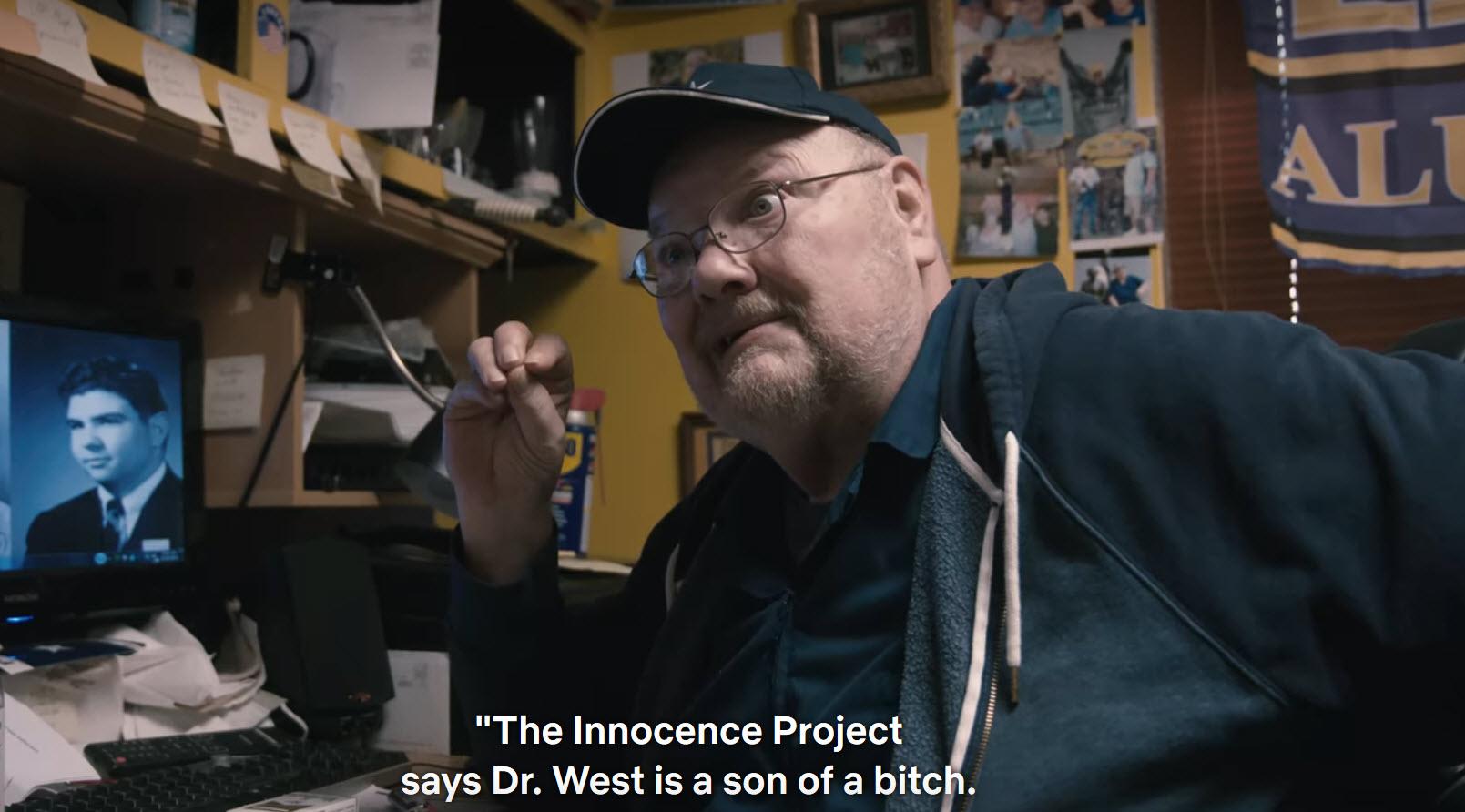
In this mocking voice he says: “The Innocence Project says ‘Dr. West is a son of a bitch. He lies he cheats, he puts people in prison, he invents evidence! Oh, God!'”

He continues: “Dr. West is from Mississippi—he’s a racist.”
 Then he argues that the Innocence Project is the problem.
Then he argues that the Innocence Project is the problem.
He said: “They don’t give a damn about the truth.”
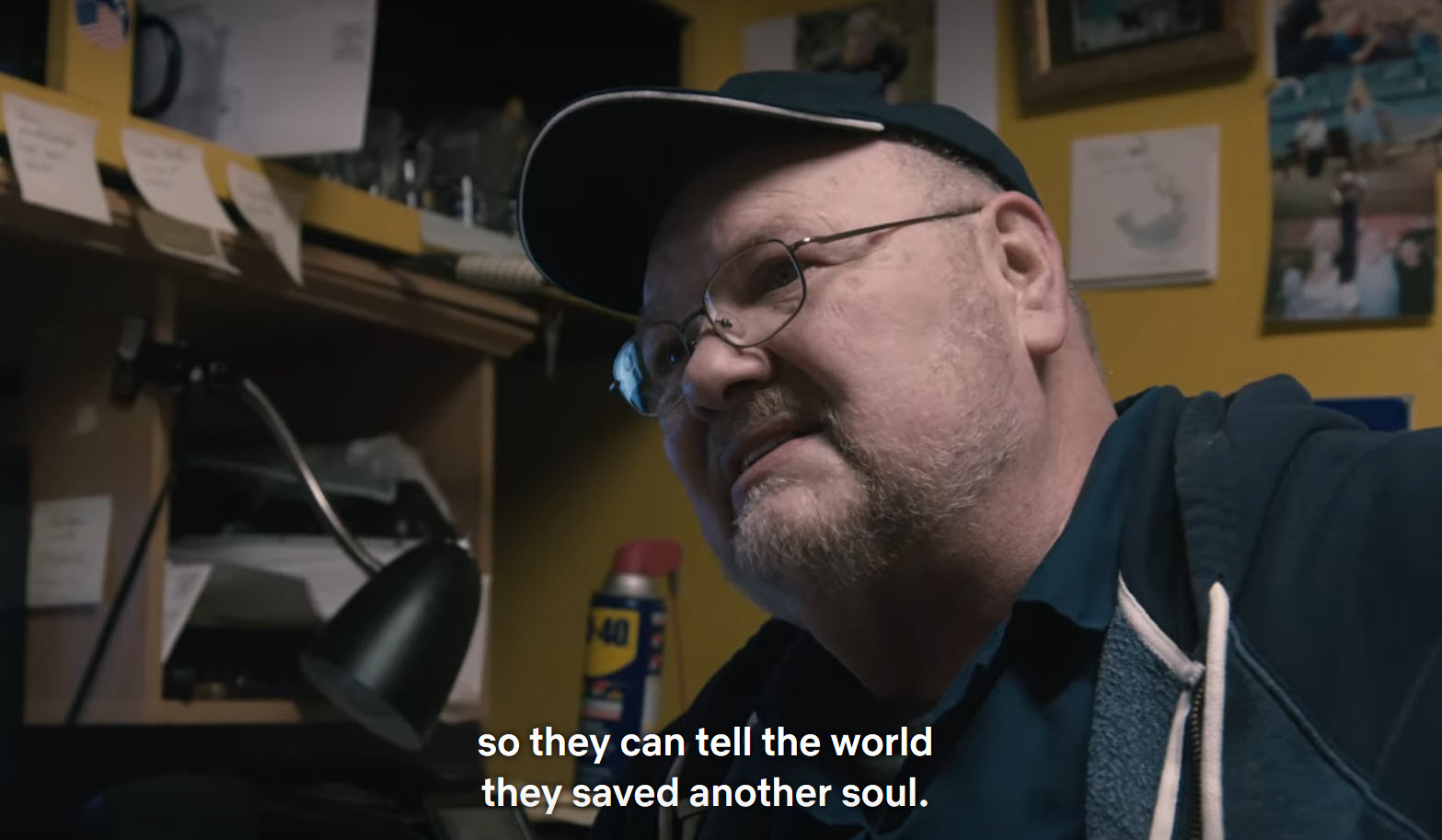
He argues, “They just want this guy released from jail so they can tell the world they saved another soul.”
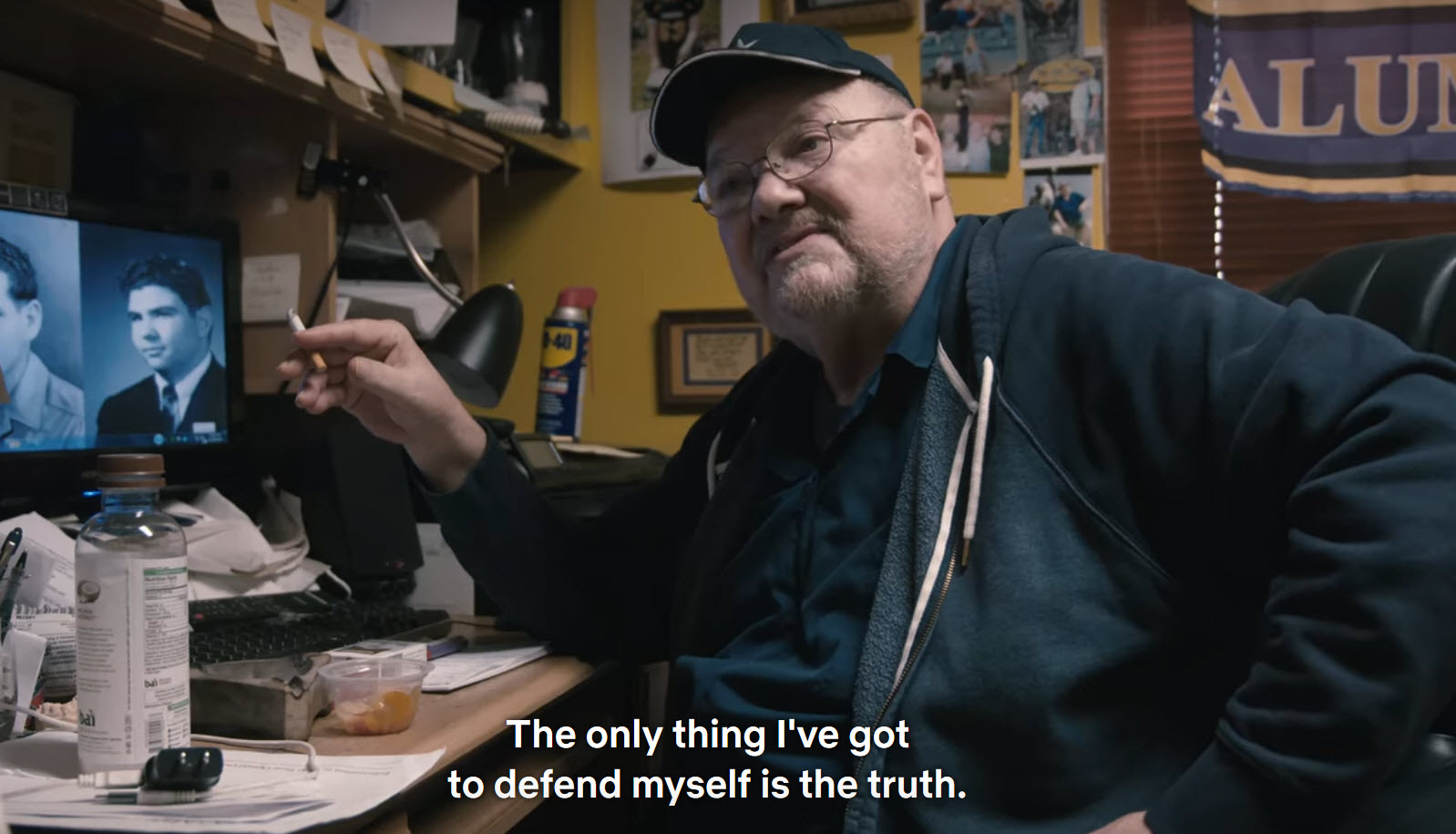
He continued: “The only thing I’ve got to defend myself is the truth”
He added, “And the truth will defend me.” “Deo vindictus.”

But is he defended here? He and the DA have to argue, after the DNA in one case excludes the wrongly convicted Kennedy Brewer, perhaps he sold the girl for crack, that wouldn’t be the first time. But now you are changing the theory of the crime. It is a problem that your evidence causes you to speculate rather than prove beyond a reasonable doubt. And yet, Mr. Brewer remains in prison for another seven years after DNA showed he was not the man to rape the three-year-old girl.
As it turns out, this wasn’t the only time Michael West went off the rails. Radley Balko in 2016, as he was writing the book on the Brooks and Brewer cases, describes a deposition on the case Lee Howard, who in 1994 was convicted of the rape and murder of an 84-year-old woman, partly on the basis of Dr. West’s testimony.
During this deposition, West was questioned by Chris Fabricant, Director of Strategic Ligation at the Innocence Project of New York. Also present was Tucker Carrington, Director of the Mississippi Innocence Project.
Writes Balko, “West frequently has been brash, prickly, and prone to fits of braggadocio on the witness stand. This time, he was also belligerent, profane, and combative. “ (The transcript is worth a read – Balko himself has some excerpts here).
I don’t know if West understands, but he has been portrayed as the bad guy in all of this—someone who has personally profited off of junk science. His conduct plays into that enormously.
He wants to argue he’s not a racist—I don’t know whether he is or isn’t—but he does himself no favors with the confederate flag and the flippant attitude. These are people’s lives he has destroyed. Unfortunately, while he makes a convenient bad guy, the real bad guys are those such as the one with the ironic name of Forrest Allgood (you can’t make this stuff up) and the system itself that failed to test the accuracy of such proclamations.
—David M. Greenwald reporting
To sign up for our new newsletter – Everyday Injustice – https://tinyurl.com/yyultcf9


Thanks – I’ll pass on watching that.
Inane comment, Ron… the article attacks a person, possibly libels him… his methodology is highly suspect, he is likely a jerk… but the article goes more towards character assassination… far beyond discrediting his testimonies, evidence, and how those were misused to convict folk who should not have been… blog equivalent of ‘tar and feathering, riding on a rail’…
Yet, Ron you go for a trifle quote, an insipid bon mot’… typ… cute… not…
It is interesting you are more concerned with the correct usage of a word in the headline than the fact that this guy has been sending innocent people to prison for years and is sanctimonious about it.
Thanks. Probably helps that I didn’t even read the article. Except for that caption.
Next time, I’ll add a “bada-bing, bada-boom” for more effect. (Hey, now that I think about it, what does that actually mean?)
I would have if RO hadn’t
Btw, I questioned that immediately, but the wording of the caption was intended (with a different meaning than the one we jump to) and was not a typo
cathy
O.K. – I guess I better make a more serious comment, to “atone”.
That type of attitude usually works against such expert witnesses, and it’s the job of the defense to “expose” it. (Damn, there’s that word again.)
If what our adversarial system was truly seeking was “justice” there would be no burden on the defense to “expose” it since the prosecution would not use it in the first place and the judge would find it inadmissible and so instruct the jury. That unfortunately too often does not happen in our system.
As for the “science” involved. No reputable scientist believes that their techniques are not reproducible by others. Honest scientists articles almost always include a statement of the limitations of their studies/techniques and a caution that more studies are needed in areas they recommend.
One cannot eliminate “attitude” via directive.
Nor can one adequately re-try a case on a politically-oriented blog (or TV show, for that matter).
Maybe they could try it via “Zoom”, however.
Bada-bing (but doesn’t deserve the complete bada-boom).
They also didn’t retry the case on the documentary, the courts threw out the convictions in 2007. Your humor aside – which was well-played – the comment is a little patronizing as it discounts the impact of investigative reporting for exposing injustices.
My friend won a Pulitzer for the story linked below in 2004. It led to a re-examination of this case, even though the guy was already executed, it led to Texas changing state law and the prosecutor in the case facing criminal charges. So I think you underestimate the importance of journalism.
https://www.chicagotribune.com/nation-world/chi-0412090169dec09-story.html
In reality, I think there’s a need to bring up issues such as this (e.g., for those who aren’t aware that wrongful convictions occur).
I also realize that the system hasn’t necessarily been set-up very well, to correct mistakes.
Sounds like the court system ultimately corrected it, this time. (But, with untold impacts.)
(Made in response to your 12:14 p.m. comment – not the 12:17 p.m. comment.)
No one realized how bad this stuff was until they had DNA that could prove people didn’t commit the crime and the whole system realized how flawed some of this stuff really was.
The courts did get this case right, but they were in prison for 18 years before it figured it out.
“One cannot eliminate “attitude” via directive.”
True as written. But I said nothing about “directive”. I implied an honest prosecutor would not use “attitude” and a dishonest witness ( like a forensic scientist saying he was the only one qualified to interpret data) and an impartial judge would caution a jury about such biased testimony.
Not quite what you wrote, above. Note that what you apparently responded to initially was a comment regarding “attitude”.
I would think that a claim such as this would be easy to disprove.
It’s designed to be an adversarial system. But there certainly are some who stubbornly cling to views, with devastating results at times. (And even if that wasn’t true, mistakes will be made.)
Ideally, outcomes are based upon a preponderance of evidence, and not on the actions or views of one player in the system. That’s why trials exist in the first place (assuming that the matter even gets that far).
Here are some additional points of how our justice system can fail:
Current system:
Only the attorney may raise objection -> This is bad for justice.
An attorney may try an illogical argument without penalty -> bad for justice.
Judges may inconsisterly admit or reject evidence, overrule or sustain objections without penalty -> bad for justice.
A better system may be like this:
All officers of the count (including judges and attorneys of both sides) should be held accountable to any logical error they present or fail to catch. All observers are allowed to point out such errors to protect the logical integrity of the justice system AND to educate the people on what correct and flawless logic is.
When these implementations, the public can correct illogical use of experts and incorrect interpretation of scientific research in the court. They can hold judges, experts, and attorneys accountable (e.g. losing their license to serve in a court of justice) for their failures to catch the errors that the public could catch.
Judges, experts, and attorneys have too much unchecked powers. That is bad for justice.
Reminds me that I recently viewed “Disorder in the Court”, by the Three Stooges. Pretty good one, too.
I think my favorite part is when Larry yells out “a tarantula”, in regard to a toupe that he accidentally snagged on his violin bow.
Scary… really… who has flawless , correct logic? Do you claim such status, Edgar?
I know I don’t… I may claim facts, experiences… but I do not claim to be ‘flawless’… am too smart for that…
The “held accountable” part, being vague and judgmental, is very troubling, depending who is judging… individual, vox populi? I trust neither…
I watched the first two episodes. People should watch it before commenting here.
Fair comment…
I didn’t even read the article, before commenting. The caption alone was worth commenting on.
Bada-boom.
You should watch the episodes – even just the initial two episodes.
That is what Rush Limbaugh claimed in the early nineties that you needed to listen for sometime before judging. I did and I got it. It was sophomoric and one sided. It was the radio version of standup comedy. I found it sexist, boorish and reactionary right wing drivel directed at an audience of impotent, underachieving, angry, resentful white males of my age. I turned it off.
Well, now I’m starting to become interested in watching it (to see what all the “hubbub” is about).
I thought it was the opposite – that it was highlighting that type of view (for critical examination/analysis).
Of course, based upon the “exposure” caption (alone), I thought it might have been broadcast on Zoom, instead of on T.V.
Bada-bing.
“It’s designed to be an adversarial system.”
Of that, I am well aware. And it is a design flaw that allows individuals to place a “win” above “justice”. That causes prosecutors to hide relevant material from the defense. That allows cases in which the defense is clearly inadequate to proceed as though all were fine.
Having a system designed in a certain manner is no argument against the ongoing assessment of its efficacy, equity, and accuracy, all of which have been seriously lacking for as long as I can remember.
The big problem is that when you are talking about low income people of color in a lot of jurisdictions, it’s not a fair fight.
I thought that this is what discovery is for.
I suspect that the percentage/number of prosecutors interested in convicting innocent people is somewhere around “zero”.
Might there be a better system? Maybe.
“I thought that this is what discovery is for.”
You have to “discover” what they are withholding is the problem. Yes, withholding exculpatory evidence is illegal and a criminal act in some jurisdictions, but you have to find out what you don’t know.
“I suspect that the percentage/number of prosecutors interested in convicting innocent people is somewhere around “zero”.”
The problem is often confirmation bias and tunnel vision – they are convinced they have the right person and ignore all evidence to the contrary.
“Might there be a better system? Maybe.”
I don’t worry about whether or not there is a better system. I worry about making our system that we have, better.